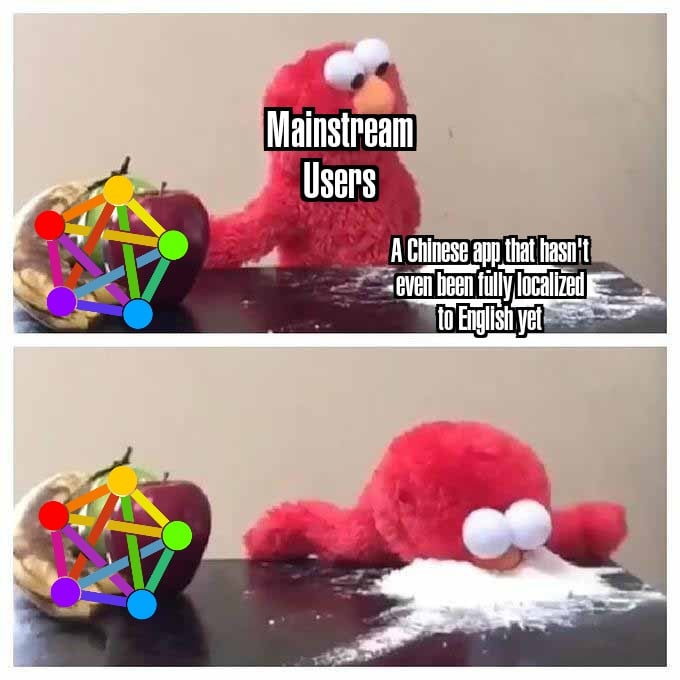this post was submitted on 19 Jan 2025
886 points (97.5% liked)
memes
16381 readers
4047 users here now
Community rules
1. Be civil
No trolling, bigotry or other insulting / annoying behaviour
2. No politics
This is non-politics community. For political memes please go to !politicalmemes@lemmy.world
3. No recent reposts
Check for reposts when posting a meme, you can only repost after 1 month
4. No bots
No bots without the express approval of the mods or the admins
5. No Spam/Ads
No advertisements or spam. This is an instance rule and the only way to live.
A collection of some classic Lemmy memes for your enjoyment
Sister communities
- !tenforward@lemmy.world : Star Trek memes, chat and shitposts
- !lemmyshitpost@lemmy.world : Lemmy Shitposts, anything and everything goes.
- !linuxmemes@lemmy.world : Linux themed memes
- !comicstrips@lemmy.world : for those who love comic stories.
founded 2 years ago
MODERATORS
you are viewing a single comment's thread
view the rest of the comments
view the rest of the comments

I recently listened to Paul Frazee talk about Bluesky on the Software Engineering Radio podcast and it struck me that one thing they got right was looking at social media like a search engine looks at the web, instead of like a centralized platform(Facebook) and instead of like a federated network of platforms(fediverse).
If your feed is understood to be just the search results you see, then users can understand that their algorithm is something they need to work on in the same vein that they change their search parameters on Google or Bing or other search engines.
you don't have access to the algorithm though.
No, but you have access to the protocol so you write your own algorithm.
Then it is your algorithm, using the common protocol, that goes out and retrieves search results for your feed.
Likewise, 3rd party corporations can write their own algorithms on the protocol and everyone can choose which algorithms fill their personal feed with search results - turning them on or off on a whim, at a personalized level.